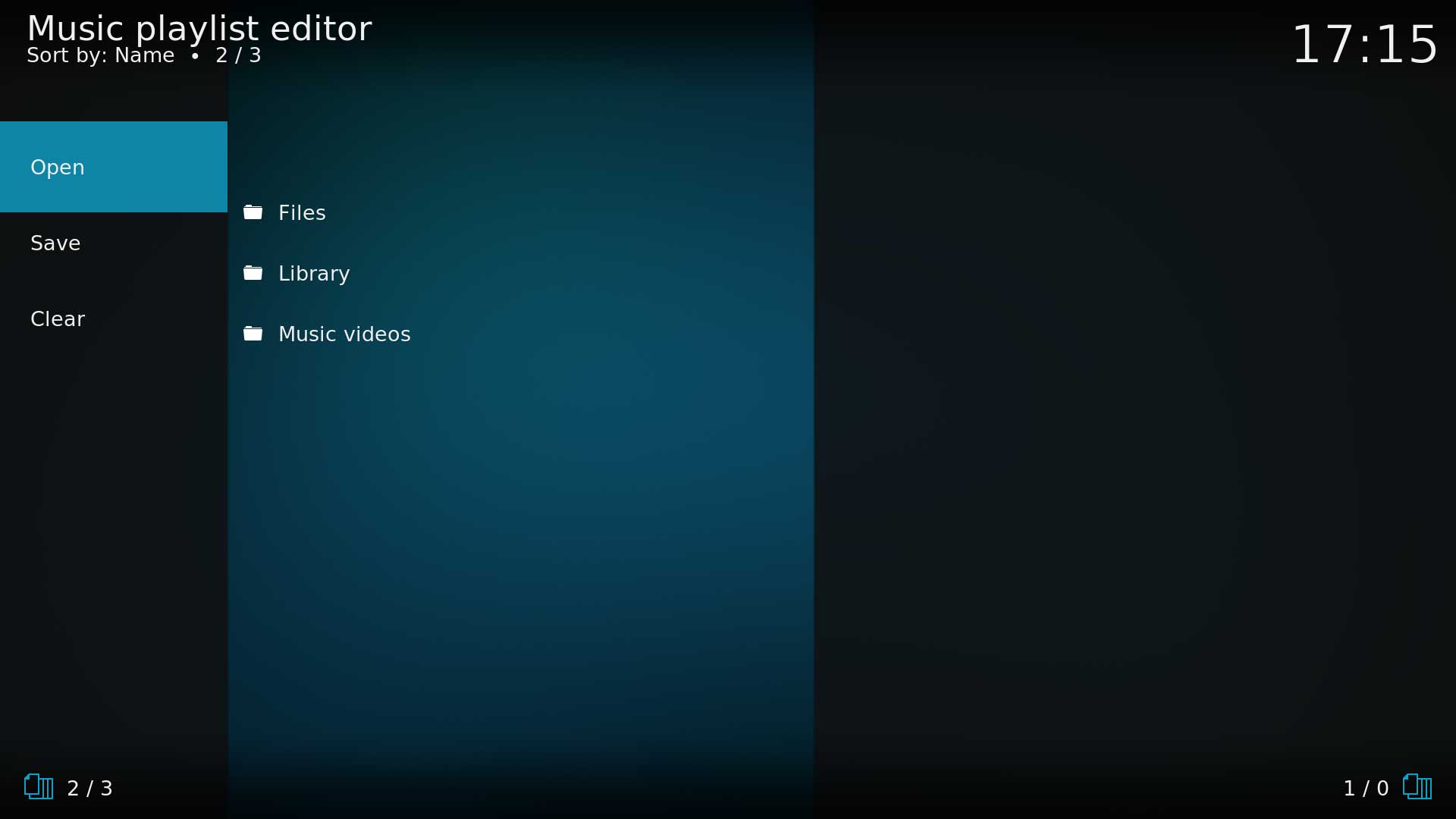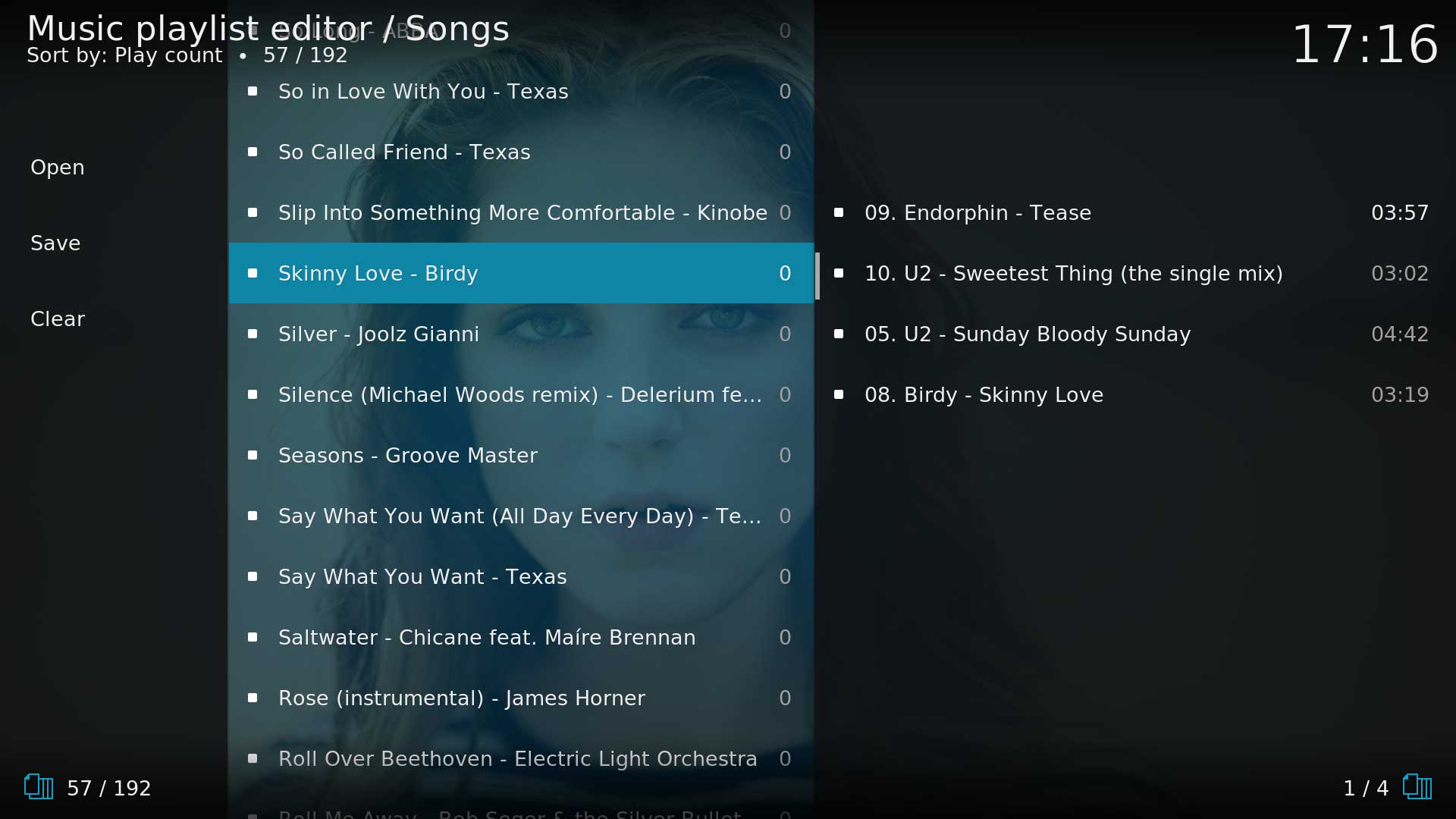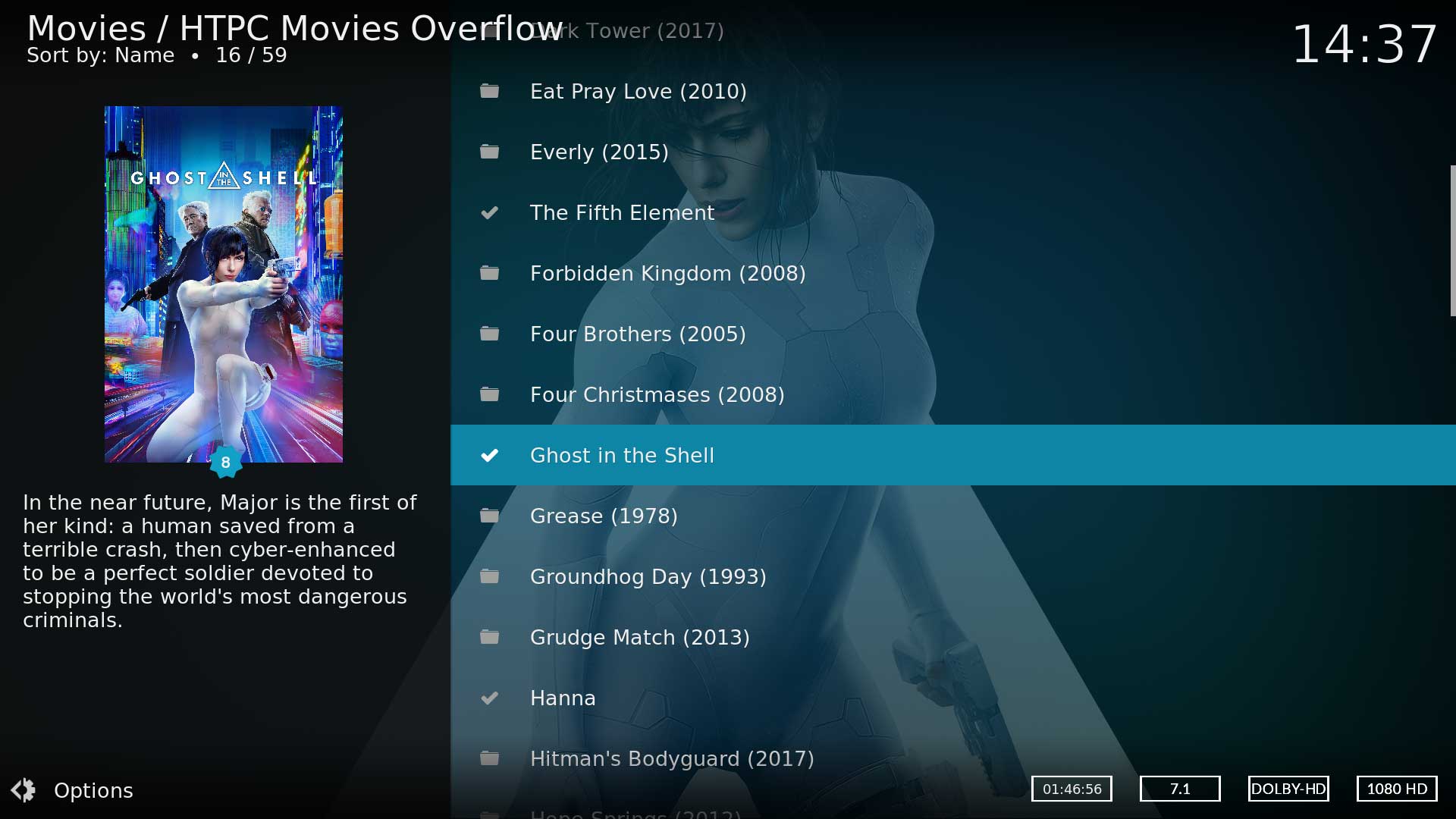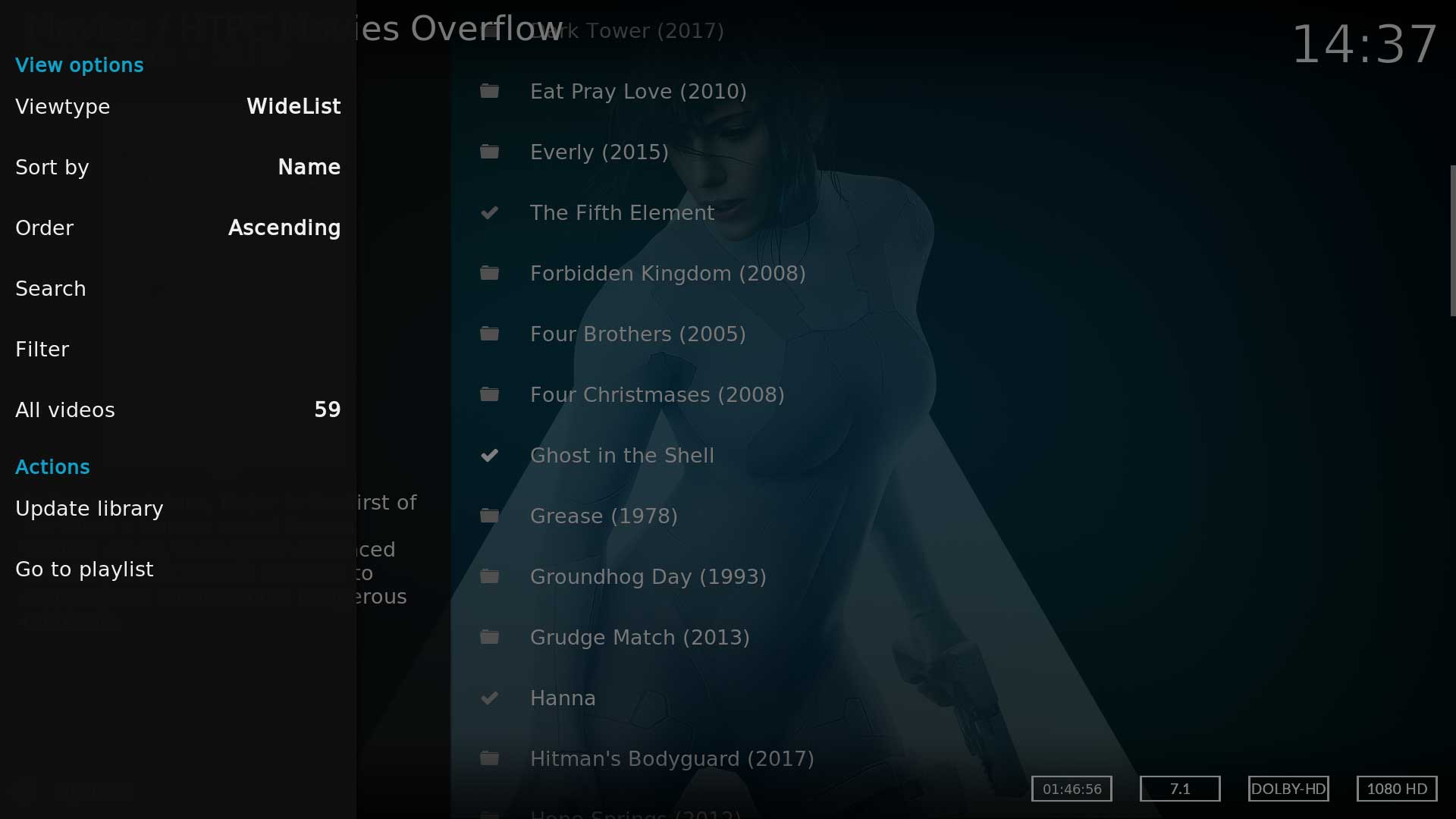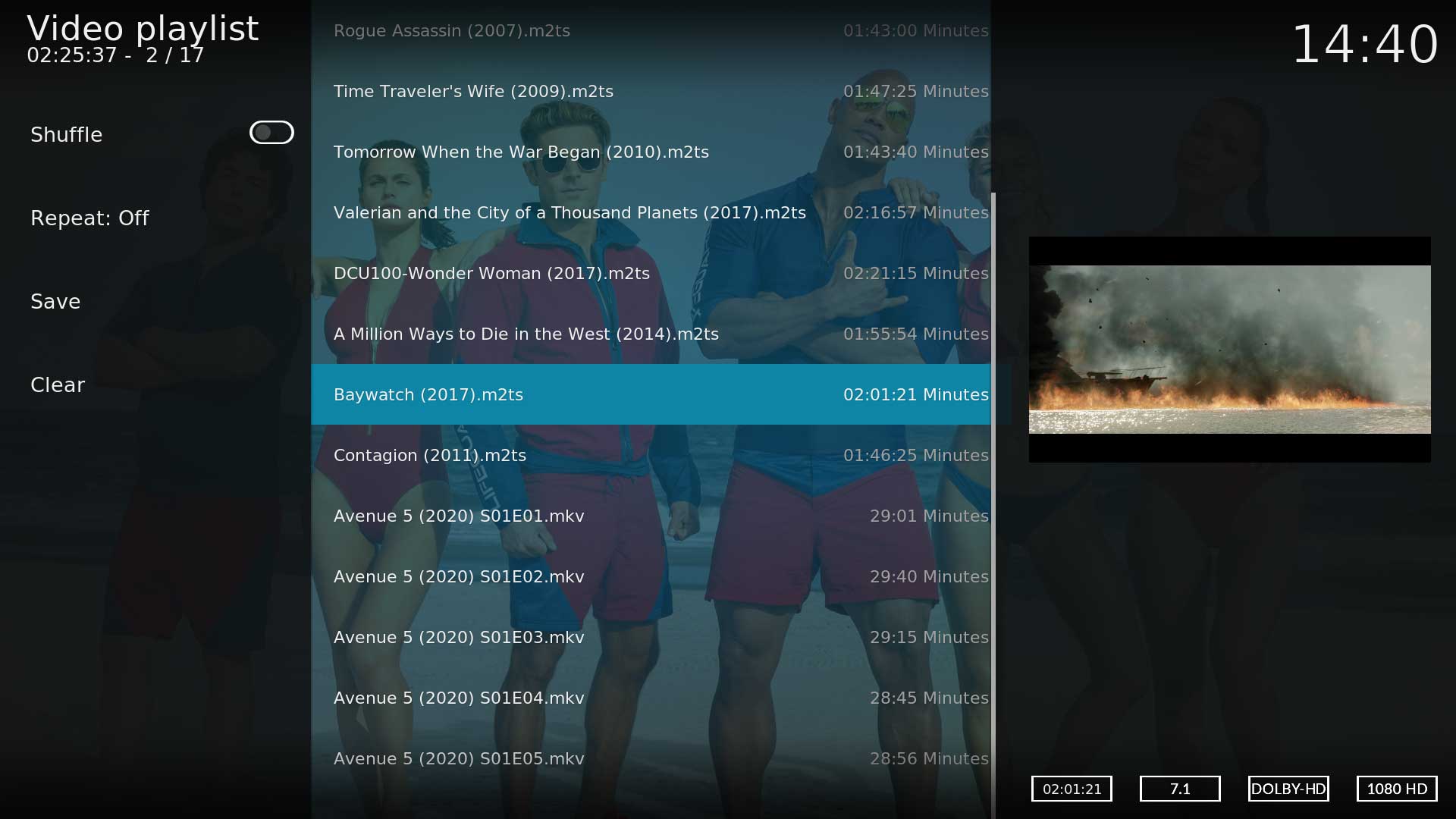Basic playlists
Introduction
The Basic Playlist is a user created list of music or video that does not require a correctly scraped library as it uses the folder paths to the media files. As the playlist is based on paths, different classes of media can be mixed, like movies and episodes. The list can be created within Kodi or transferred from another media player.
If your list of music or video has a common theme like genre, year, artist, studio, actor, etc, then you should consider using Smart playlists which will automatically generate the playlist based on rules. If the titles are random and there is no similarity between the items you want to group, then a manually created Basic Playlist is the best option.
Note: Depending on your setup, the m3u file may use relative paths to local content. If you then transfer a playlist file to another media player on different hardware, even though it has access to the same content, the paths may be different and Kodi will be unable to find the media. Use Absolute paths where possible.
Playlist Files
The Kodi generated basic playlist file is in the m3u format.
Supported Formats
Kodi supports the following playlist files:
- Cue Sheets for music
- m3u (default)
- m3u8 (added in v21 Omega)[1]
- PLS
- Stream files (.strm)
- Windows Media Player .wpl files
- Smart playlist .xsp files
Location of Playlist Files
Playlist files are are located in the userdata/playlists folder. The location of this folder for each platform is shown in the table below.
The Userdata folder is a subfolder of the Kodi Data Folder and is located as shown in the table below.
| Operating system | Userdata Folder |
|---|---|
| Android | Android/data/org.xbmc.kodi/files/.kodi/userdata/ (see note) |
| iOS | /private/var/mobile/Library/Preferences/Kodi/userdata/ |
| LibreELEC | /storage/.kodi/userdata/ |
| Linux | ~/.kodi/userdata/ |
| macOS | /Users/<your_user_name>/Library/Application Support/Kodi/userdata/ |
| Nvidia Shield (SMB) | smb://<nvidiashieldurl>/internal/Android/data/org.xbmc.kodi/files/.kodi/userdata |
| OSMC | /home/osmc/.kodi/userdata/ |
| tvOS | /private/var/mobile/Library/Preferences/Kodi/userdata/ |
| webOS | /media/developer/apps/usr/palm/applications/org.xbmc.kodi/.kodi/userdata/ |
| Windows | %APPDATA%\Kodi\userdata |
| Windows Portable | <Install location chosen by you>\portable_data\userdata\ |
| Windows via Microsoft Store | %LOCALAPPDATA%\Packages\XBMCFoundation.Kodi_4n2hpmxwrvr6p\LocalCache\Roaming\Kodi\ |
| Windows Xbox | %LOCALAPPDATA%\Packages\XBMCFoundation.Kodi_4n2hpmxwrvr6p\LocalCache\Roaming\Kodi\ |
- Note: In some Android setups the path may be slightly different to the one stated above.
Editing m3u Files
If you choose to manually create your m3u playlists, then any text editor will suffice, but we recommend using an editor that can parse XML such as Visual Studio Code or Notepad++.
Use External Playlists
If you have a playlist that you manually created, or one that was created by another media player that:
- Is in a format supported by Kodi as detailed above, and
- The file paths are valid as described in the Introduction note, and
- Is saved in the correct playlist subfolder
Then you can use Kodi to play it.
Playlist Editor
Kodi has a built in Playlist Editor where playlists can be created and edited.
Playlist Editor Location
The Playlist Managers are located as follows:
- Music library
- From the Main Menu navigate to Music > Playlists
- Select New Playlist... to create a new playlist
- Highlight an existing Playlist and from the Context menu select Edit playlist to edit an existing playlist
- Video library
- There is no playlist editor for the Video library. Use the Queue Method (next section) or create the playlist externally.
Using Playlist Editor
- Editor Layout
-
- Left panel contains the Action buttons
- Middle panel used to navigate to your music
- Right panel contains the songs in the playlist
- Create New Playlist
- Decide how to locate your music files to add to the playlist-
- Files- Navigate the folder structure of your files
- Library- Navigate the library nodes
- Music Videos- Also add music videos to the playlist
- Whichever method you choose, the file paths are stored in the playlist.
- What can be added to the Playlist
-
- Artist- Selecting an Artist will add all songs attributed to the Artist
- Album- Adding an Album will add all songs in the album
- Song- Add an individual song
- Adding Items
- Highlight the item to be added then using one of the following two methods
- Press Q on your keyboard, or
- From the Context Menu select Add
- The items will appear in the right panel in the order they are added.
- Reorganise Items
- To reorganise the order of the playlist items, move across to the right panel and on a keyboard select
- U - Move selected up
- D - Move selected down
- DEL - Remove from playlist.
- Alternatively, use the Context Menu which contains the same action options.
- A remote control with the proper keymap additions can also use those actions.
- Save the Playlist
- Select Save from the left panel and enter a playlist name when prompted. The playlist will be accessible from Music > Playlists
- A music m3u playlist is always saved in \playlists\music\ even if it contains music videos.
- Edit Existing Playlist
- To open and edit an existing playlist, use one of the following methods
- From the left panel, select Open and navigate to your playlist
- In your list of Playlists, highlight the playlist and select Edit playlist from the Context Menu
- Delete Playlist
- From your list of Playlists, highlight the playlist and select Delete from the Context Menu
Queue Method
While browsing your library, you have the ability to queue items for playback. These items are added to a temporary playlist.
This temporary playlist can be accessed from the Sideblade menu and can be further edited and saved as a Basic playlist.
Using this method, Basic Playlists can be created for Music and Videos from either the files or library structure.
- Adding Items
- Highlight the item to be added then using one of the following two methods
- Press Q on your keyboard, or
- From the Context Menu select Queue item
- Repeat as necessary and all items will be added to the temporary playlist.
- Accessing the Playlist
- From the Sideblade menu select Go to playlist
- Once you enter the playlist, the options for editing and saving are similar to the Playlist Editor detailed above.
References
| Return to top |
|---|
